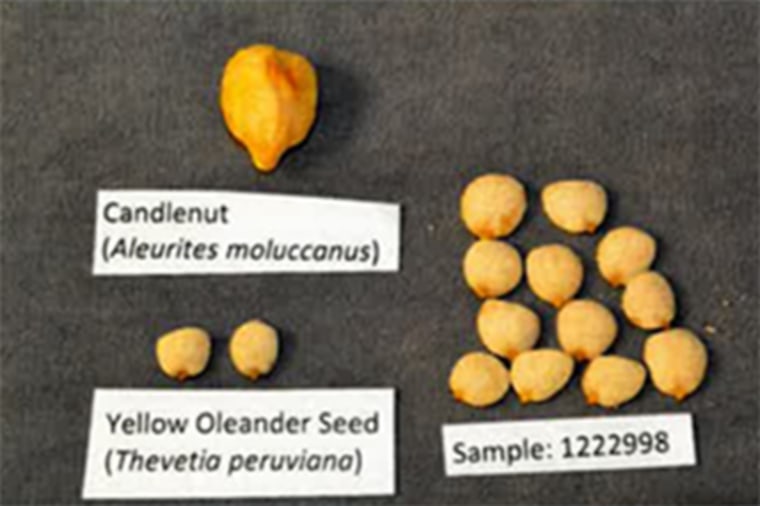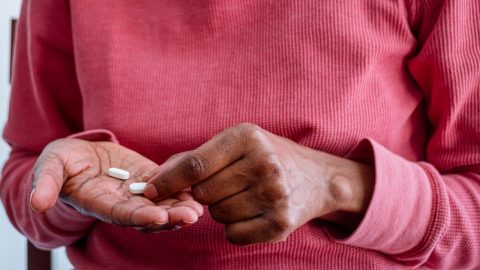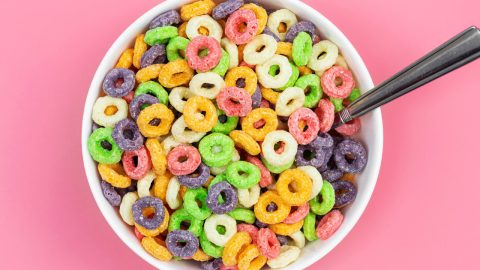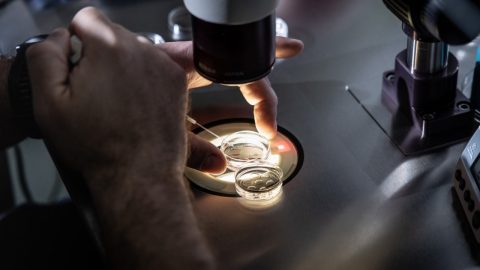The sick patient had eaten candlenuts, but the symptoms were unexpected.
The nuts, also known as Nuez de la India and sometimes marketed as a weight loss supplement, are known to cause nausea or vomiting in some cases. However, an emergency room doctor told the Maryland Poison Center that this patient was in the hospital with a slow heart rate, low blood pressure and high level of potassium in their blood.
The poison center experts had an idea: Although the product the patient ordered on Amazon was labeled as Nuez de la India, it might instead have contained a poisonous plant called yellow oleander. A similar case had been reported in Minnesota.
Tests confirmed their suspicion.
“We were shocked that this mix-up could have happened,” said Dr. Joshua King, medical director of the Maryland Poison Center.
Yellow oleander is so toxic that ingesting it is considered a form of self-harm in Sri Lanka. The patient could have died without treatment, King said — doctors can administer an antibody antidote called Digibind for yellow oleander poisoning — though the person made a full recovery.
In the last month, the Food and Drug Administration and Centers for Disease Control and Prevention have each issued warnings about instances in which yellow oleander has masqueraded, undisclosed, as supplements sold for purported weight loss benefits.
In its report, the FDA cautioned that several products labeled as Nuez de la India and sold online through platforms like Amazon, Walmart or eBay may be yellow oleander instead. The agency named two brands: Nut Diet Max and Todorganic Natural Products, both of which voluntarily recalled the products. But the FDA warned that other candlenut supplements “with similar marketing descriptions may also contain yellow oleander.”
Then, on Thursday, a CDC report described a toddler in New Jersey who became ill after eating their mother’s tejocote root supplement, a substance derived from the Mexican hawthorn plant that is also marketed for weight loss. The product turned out to be made entirely of yellow oleander.
All parts of the yellow oleander plant contain poisonous compounds, and consuming them can cause a burning sensation in the mouth, nausea, vomiting, stomach pain, diarrhea, dizziness, irregular heartbeat or death.
The child, who was nearly 2 years old, experienced vomiting, low blood pressure and a slowed heart rate, but recovered after treatment. Following the incident, the New Jersey Poison Information and Education System tested 10 supplement products labeled as tejocote and found that none actually contained tejocote root, while all but one were positive for yellow oleander.
A 2021 study also found that tejocote sold under the brand name Alipotec contained yellow oleander. Armando González-Stuart, a professor of herbal medicine at El Paso Community College, said that product falsely claimed that it was FDA-approved.
In the case of the Maryland patient who consumed yellow oleander, King said, “I don’t have any reason to think that [the substitution] was malicious, intended to kill, but it is entirely possible that these were more available than candlenuts because they look similar.”

Still, he added, “if you’re digging up seeds, you kind of should have an idea of what it is.”
Dr. C. Michael White, head of the Department of Pharmacy Practice at the University of Connecticut, said doctors usually won’t know to prescribe treatment for yellow oleander poisoning unless patients mention that they took a botanical supplement.
“A lot of people think because they’re taking a dietary supplement, it’s not a prescription drug, that it must be safe — and if they’re having an issue, well, it couldn’t be due to that. They don’t think about mentioning it and sometimes in the health care system, people don’t even think to ask,” he said.
Dietary supplements don’t require FDA approval, though the agency does mandate that companies that manufacture, package, label or store supplements test their ingredients and limit contamination.
However, the FDA doesn’t require proof that companies are doing so, experts said.
“It’s up to the FDA to find these products and then to test them and then prove that they are unsafe before the products can be removed from the market,” White said.
Because of that, he added, people should be “very, very skeptical of buying any product that’s not verified by an independent third-party laboratory.” He encouraged consumers to look for certifications from the U.S. Pharmacopeial Convention or National Sanitation Foundation.
Both tejocote and candlenuts are sold under various names, which can create additional confusion. Candlenuts are sometimes called “botanical food,” “India Nuts for Weight Loss,” “slimming seeds,” “India seeds for weight loss” or “diet seeds,” according to the FDA.
Dosage instructions are also often inconsistent.
“You look at some of these websites that promote them, that sell them, they give you varying amounts, varying dosages,” González-Stuart said. “The information is often contradictory or it’s not enough for someone to actually know how much to take.”
King said the Maryland patient could not read the Spanish instructions on the product they ordered.
“So they took the whole package of 12 candlenuts,” he said. “They got a higher dose, which undoubtedly led to them having greater degrees of symptoms.”
Even if a product is pure candlenut, the experts said, consuming it in excess can upset the stomach. Too much tejocote root can also lead to an upset stomach, irregular heartbeat, trouble breathing and low levels of blood cells or platelets, though González-Stuart said most versions sold online don’t pose serious risks.
There’s no evidence that either supplement helps with weight loss, he said.
“There is a lot of money made with these products because they say it’s miraculous and it’s natural, it’s got no side effects, and neither of those is true,” González-Stuart said, adding: “In my personal opinion, it’s just a scam.”









Recent Comments